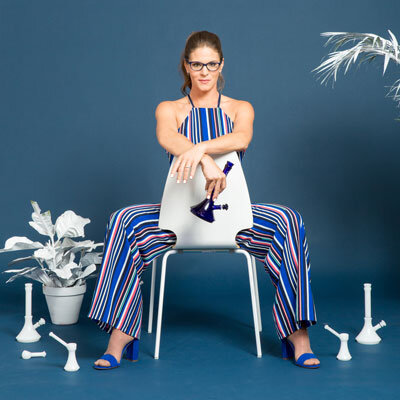It’s Time to End the Canna Ban, Facebook
Social media shutdowns have become a hazard in the legal cannabis industry. In recent months major companies — Oakland’s Harborside Health Center, the social network MassRoots, Boulder retailer The Farm, and the Denver-based edibles makers Dixie and Incredibles — have had their Facebook and Instagram accounts shut down without notice.
Those accounts represented years of investment in brand building and community development. For legacy brands like Coke or BMW, social platforms remain secondary plays. Those old-school companies were built on television buys and splashy print ads. But in the cannabis space, social media isn’t an ancillary part of marketing. It is marketing. Television remains closed to us. Print buys are largely limited to specialty mags like Dope, or alt weeklies like The Stranger and Westword. Some cannabis companies are turning to billboards — a throwback medium — to reach a mainstream audience.
It’s not just about advertising, though. Social media is a powerful force for progress and normalization in the cannabis space. We can’t control the lame choices of mainstream media photo editors. But on social media we each are our own photo editor.
When we Instagram or Facebook pictures of women consuming in normal situations, responsibly and elegantly, we counteract the stereotype of stoner bros hitting a skull bong.
Last week, my friend and colleague Lauren Gibbs pushed back. Her social media consulting group, Rise Above Social Strategies, launched the #EndTheSocialCannaBan campaign with an open letter to Mark Zuckerberg.
Gibbs asked the Facebook founder to recognize the disconnect between his own concerns about the drug war and his company’s ongoing efforts to shut down the social media accounts of legal cannabis businesses. She wrote to Zuckerberg:
“After your visit to San Quentin State Prison, your followers heardyour thoughts on the racial bias of the war on drugs. Yet your companies — Facebook and Instagram — regularly and capriciously shut down accounts with cannabis content. Many of those companies are operating within the laws governing their state. Many of those companies are involved in efforts to end the profound racial injustices of the drug war.”
Gibbs is asking Zuckerberg’s social media platforms to adapt their terms of use to accommodate state-legal cannabis companies. She’s not naive. She knows that using the tag @zuck could bring extra scrutiny to cannabis accounts, which already face the daily threat of shutdown. Even with that possibility, Gibbs asks: “Can we take the risk together? Our silence is not helping. And I will surely make some noise over any accounts that are shut down in retaliation for even asking Zuckerberg to revisit the terms of service!”
The #EndTheSocialCannaBan campaign comes at a moment when Facebook officials are confronting hard questions about their company’s role in politics and culture. On Monday,Gizmodo reported that Facebook news curators routinely suppressed politically conservative stories from its “trending” news section. Now Facebook faces issues ranging from political biasto its very purpose as a company. Is it truly a neutral social media platform? Some cannabis-related posts are forbidden, while others — such as those put up by Snoop Dogg and Miley Cyrus — are allowed. By warping its trending items, and selectively erasing legal cannabis accounts, Facebook has entered a space somewhere between editing and censorship.
Why does it matter? Because social media has become more than just an app. Spaces like Facebook, Twitter, Instagram, Tumblr, and Snapchat are our modern public forums. They’re meeting spaces. Importantly, social media accounts are opt-in. You choose who to like. You choose who to follow. It’s an organic process.
Social media is where many consumers are choosing to come out of the cannabis closet. I see it every day on my own feeds. People share with me how much thought (and worry) went into their first Facebook or Instagram post about their own cannabis use. For many women, that first shared pic of a joint or pipe during flower hour — no different than many moms sharing pics of wine glasses at a Friday happy hour — comes with worries about judgment, social repercussions, and in some states real risk to their careers and their families.
The war on drugs won’t end through the mainstream political process alone. Smashing prohibition requires all the tools we have at our disposal, most importantly social media. Pictures and posts are normalizing responsible cannabis use. Facebook and Twitter build communities. They allow people to share personal stories, compare strain preferences, recommend products, and help a patient in need find the care they deserve. Connect with @zuck today and #EndTheSocialCannaBan.




